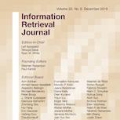The interventional nature of recommendation has attracted increasing attention in recent years. It particularly motivates researchers to formulate learning and evaluating recommendation as causal inference and data missing-not-at-random problems. However, few take seriously the consequence of violating the critical assumption of overlapping, which we prove can significantly threaten the validity and interpretation of the outcome. We find a critical piece missing in the current understanding of information retrieval (IR) systems: as interventions, recommendation not only affects the already observed data, but it also interferes with the target domain (distribution) of interest. We then rephrase optimizing recommendation as finding an intervention that best transports the patterns it learns from the observed domain to its intervention domain. Towards this end, we use domain transportation to characterize the learning-intervention mechanism of recommendation. We design a principled transportation-constraint risk minimization objective and convert it to a two-player minimax game. We prove the consistency, generalization, and excessive risk bounds for the proposed objective, and elaborate how they compare to the current results. Finally, we carry out extensive real-data and semi-synthetic experiments to demonstrate the advantage of our approach, and launch online testing with a real-world IR system.
翻译:近些年来,建议的干预性质引起越来越多的注意,特别是激励研究人员制定作为因果推断和数据缺失而非随机问题的学习和评价建议,然而,很少有人认真对待违反关键重叠假设的后果,我们证明,这种假设会大大威胁结果的有效性和解释。我们发现目前对信息检索系统的理解中缺少一个关键部分:作为干预,建议不仅影响已经观测到的数据,而且还干扰了目标领域(分配)的利益。我们然后将优化建议改写为找到将所观察到的领域所学模式最佳传输到其干预领域的干预措施。为此,我们利用域运输来描述建议中学习干预机制的特点。我们设计了一个有原则的运输限制风险最小化目标,将其转换为双玩的小型游戏。我们证明了拟议目标的一致性、普遍性和过度风险界限,并详细说明了它们与当前结果的对比。最后,我们进行了广泛的真实数据和半合成实验,以展示我们方法的优势,并用现实世界和在线测试来进行在线测试。





